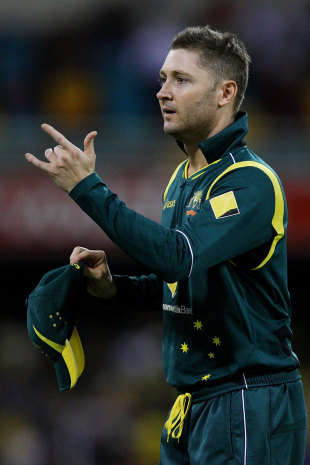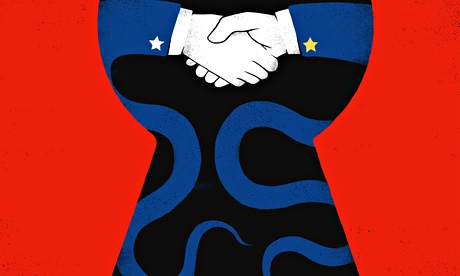Valuable notes from a book that explains the intricacies of coaching and captaincy without once mentioning either
Ed Smith in Cricinfo
November 9, 2014

Coaches must remember that practice isn't an end in itself © Getty Images
I've just read a brilliant book about captaincy and coaching. It might be the best book ever written on leadership in sport. The author not only studied many of the greats at first hand, he also did the job himself. There is a surprise, however, and I'm not going to spoil it. So guess, by all means, but I'm not giving away his name until the end.
I've gone through the notes in my book, collecting his advice into several themes.
Mystery
"The better a captain is, the less you know why. You certainly can't get the qualities from a textbook, and they can't be faked by copying a great captain. But there is also a practical side: however much talent you're born with, there's a lot to learn. All the best captains and coaches work hard at their craft, developing their own individual ways. They all do it differently, so there can't be only one "right" way. To put all young leaders through a training course only means that a mass of mediocrity will be let loose on the world."
"The better a captain is, the less you know why. You certainly can't get the qualities from a textbook, and they can't be faked by copying a great captain. But there is also a practical side: however much talent you're born with, there's a lot to learn. All the best captains and coaches work hard at their craft, developing their own individual ways. They all do it differently, so there can't be only one "right" way. To put all young leaders through a training course only means that a mass of mediocrity will be let loose on the world."
Instinct
Intuition rather than rationality often drives inspired decisions. "Some captains and coaches are totally instinctive and can't describe what they do. [After one game] I was so impressed that I complimented the captain on a detail. 'Oh! Did I do that?' he replied."
Intuition rather than rationality often drives inspired decisions. "Some captains and coaches are totally instinctive and can't describe what they do. [After one game] I was so impressed that I complimented the captain on a detail. 'Oh! Did I do that?' he replied."
See the big picture
Being preoccupied with details can't be allowed to obscure what really matters. "Skilful captains and coaches can transform the way a team plays in a very short time, even though some of them wouldn't be able to tell you much about tactics or technique. Before modern video and analytics, there was far less emphasis on precision and more on capturing the overall mood of a team. Captains were listening for bigger and more important things. We've lost something in demanding total accuracy."
Being preoccupied with details can't be allowed to obscure what really matters. "Skilful captains and coaches can transform the way a team plays in a very short time, even though some of them wouldn't be able to tell you much about tactics or technique. Before modern video and analytics, there was far less emphasis on precision and more on capturing the overall mood of a team. Captains were listening for bigger and more important things. We've lost something in demanding total accuracy."
Show, don't tell
One great captain "could tell me what he wanted with his eyes," the author writes. "It's important to look at players as if you expect the best, not as if you fear the worst. Many inexperienced coaches seem to be "looking for trouble", a real turnoff for a team. When I look at players during a match, I'm trying to involve and communicate what I'm feeling rather than police them."
One great captain "could tell me what he wanted with his eyes," the author writes. "It's important to look at players as if you expect the best, not as if you fear the worst. Many inexperienced coaches seem to be "looking for trouble", a real turnoff for a team. When I look at players during a match, I'm trying to involve and communicate what I'm feeling rather than police them."
Authenticity
Waving your arms around and acting for the cameras doesn't fool anyone. The author advises captains to have the integrity to stay focused on the game situation rather than get side-tracked about the impression he's making. If the captain is "naturally flamboyant, then it's a natural expression of his feeling". But when his self-conscious gestures are just acted out, "and don't have a real relationship with the game… then it's just a circus."
Waving your arms around and acting for the cameras doesn't fool anyone. The author advises captains to have the integrity to stay focused on the game situation rather than get side-tracked about the impression he's making. If the captain is "naturally flamboyant, then it's a natural expression of his feeling". But when his self-conscious gestures are just acted out, "and don't have a real relationship with the game… then it's just a circus."
Practice is not the real thing
"The most important thing about a practice session is that it's not an end in itself. Everything a coach does must aim at a good performance on match day. Take a chance and leave some things fluid. Don't cross every "t" and dot every "i". This may feel risky, but it keeps a team on its toes and gives the match day an "edge". Don't practise a team to death; I've never had much sympathy for coaches who "program" a team at practice and then just "run the programme" during the match. There is more to it than that."
"The most important thing about a practice session is that it's not an end in itself. Everything a coach does must aim at a good performance on match day. Take a chance and leave some things fluid. Don't cross every "t" and dot every "i". This may feel risky, but it keeps a team on its toes and gives the match day an "edge". Don't practise a team to death; I've never had much sympathy for coaches who "program" a team at practice and then just "run the programme" during the match. There is more to it than that."
Seek authority not power
"Captaincy and coaching are like riding a horse, not driving a car. A car will go off a cliff if you "tell" it to; a horse won't. A team has a life of its own, based largely on the players sensing what each other will do."
"Captaincy and coaching are like riding a horse, not driving a car. A car will go off a cliff if you "tell" it to; a horse won't. A team has a life of its own, based largely on the players sensing what each other will do."

| |||
Some coaches have an "unfair" knack
"An assistant coach told a story about how he couldn't get the team to work together at practice sessions, despite giving crystal clear instructions. Some time later he attended a practice led by the brilliant head coach, who began with the same practice drill. The head coach gave his characteristically vague and wobbly advice, and the whole team played together perfectly. It's an unjust world."
"An assistant coach told a story about how he couldn't get the team to work together at practice sessions, despite giving crystal clear instructions. Some time later he attended a practice led by the brilliant head coach, who began with the same practice drill. The head coach gave his characteristically vague and wobbly advice, and the whole team played together perfectly. It's an unjust world."
Allow room for mavericks
However good you are, some players won't listen - and nor should they. "One of the greatest players in history said he never looked at captains in the field as he couldn't understand what any of them were doing."
However good you are, some players won't listen - and nor should they. "One of the greatest players in history said he never looked at captains in the field as he couldn't understand what any of them were doing."
****
It's a very good list. But here is a confession. The book, though real, is not about cricket. The words captaincy and coaching are not mentioned at all, not once. The book's real subject is classical music, the title is Inside Conducting and its author is conductor Christopher Seaman. In quoting from the book, each time the term "conductor" appeared, I changed it for the word "captain"/"coach".
First, I want to demonstrate that cricket is not a ghetto, a special case that cannot learn from other disciplines. The art of performance is largely universal. As I found out when I made a series for the BBC comparing the life of a cricketer with that of a classical musician, the differences are dwarfed by the similarities.
Secondly, given the evolved state of professional sport, we need to rethink the outdated assumption that the way to inspire better performances is to threaten, bully, intimidate and scream at players. It's not wrong because it is undignified (though there is that too), it's wrong because it doesn't work. As I've argued before here, instead of seeing sportsmen as a rabble of unmotivated shysters in search of a sergeant-major to whip them into shape, professional athletes have more in common with surgeons and musicians.
Above all, captaincy and coaching are collaborative. No one, no matter how brilliant, can lead without followers. So I'll leave my favourite anecdote from the book in its original form, "untranslated" into cricket-speak:
"A famous conductor was conducting a major work without the score. At one point in the concert his memory failed him, and he gave an enormous downbeat in a silent bar. Nobody played, of course, and he froze in horror. A voice at the back of the violas whispered, 'Aha! He doesn't sound so good on his own, does he?'"

